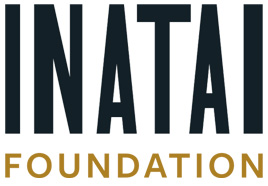Funding | Grantmaking Overview | Community power Grants
Community Power Grants
Thank you for your interest in this funding, formerly known as Community Learning Grants. Our focus at this time is on deepening our understanding of and relationships with current grantees and funding renewals for organizations whose grants are expiring. As a result, we are slowing down the pace of support for new organizations and accepting new proposals by invitation only. If you are a current grantee and have questions, please reach out to your program officer.
To stay up to date with our grantmaking:
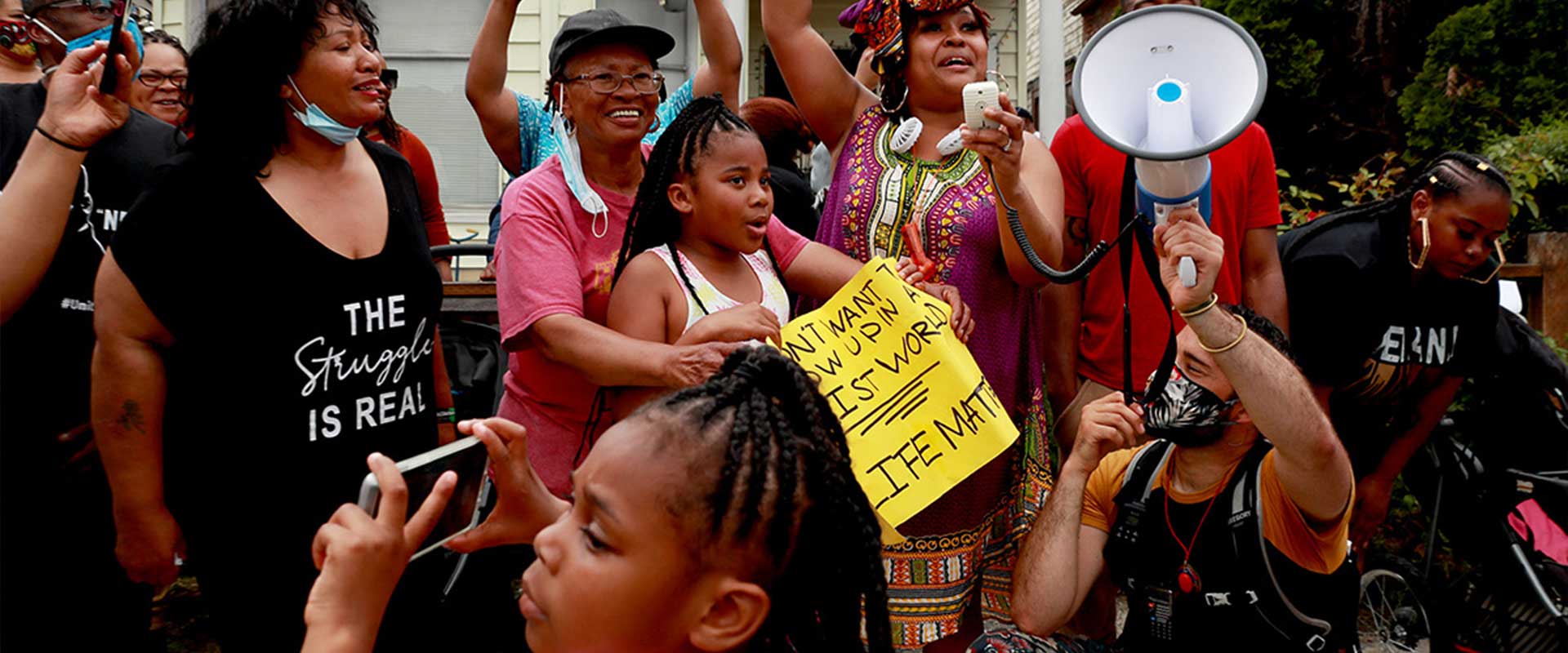
Funding priorities
Inatai Foundation is eager to support leaders and organizations across Washington that are focused on community power, equity, and racial justice. Keep reading to learn the types of organizations we’d like to support.
Jump to the following sections:
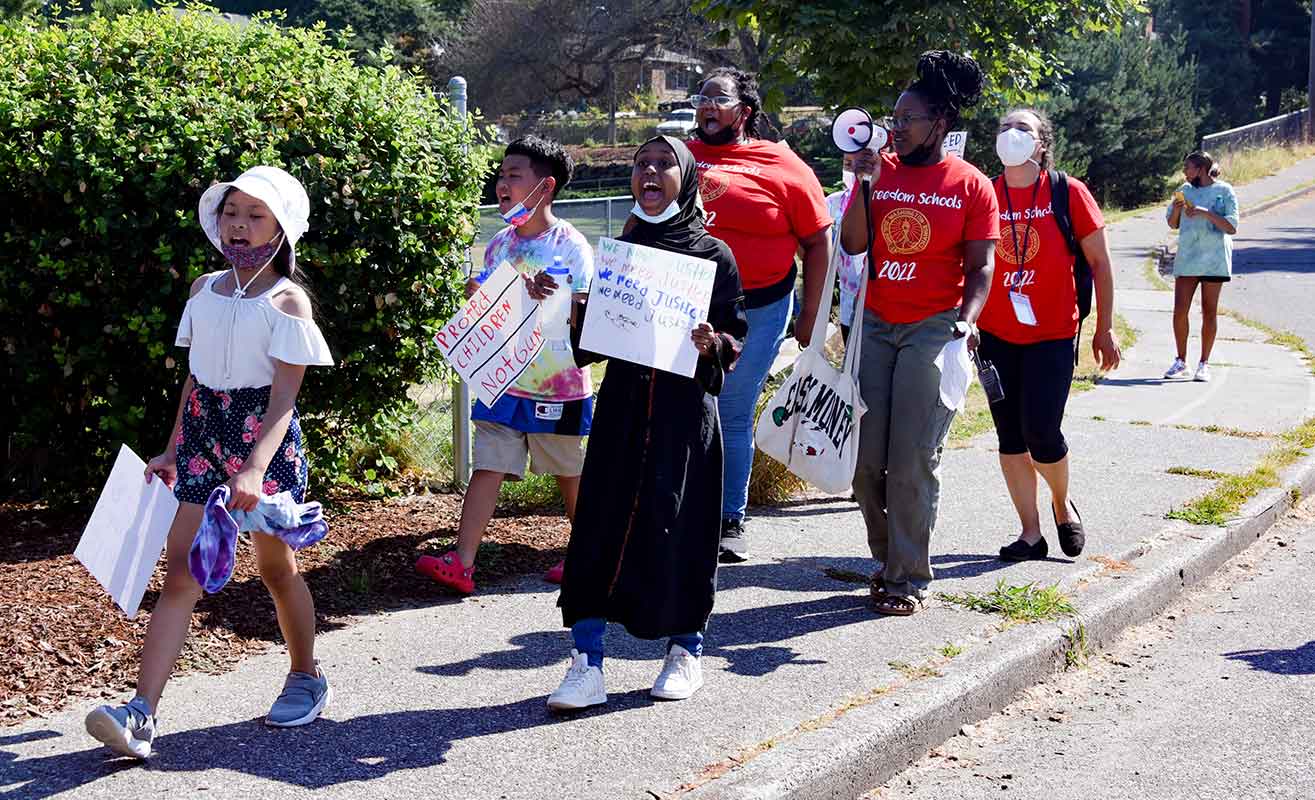
Photo courtesy of WA-BLOC.
Groups that have had limited access to philanthropy
We are interested in organizations rooted in and building power within racially diverse communities, and who have seen little, if any, investment from philanthropy. This includes organizations that work with and among Black, Indigenous, and other communities of color and LGBTQIA+ communities (among many other identities), organizations and leaders working beyond big cities and major metropolitan areas that benefit the most from philanthropic and government funds, and whose work includes civic and voter engagement, community organizing, advocacy, political action, and cultural reclamation.
work that began with and led by people who reflect their communities
We specifically assess if and how a group’s board, chief executive, and staff—or volunteer leadership for those without paid staff—reflect the people the organizations it serves. We seek to fund work by and for BIPOC; people who are LGBTQIA+; immigrants; people with disabilities; people living with low incomes; and those who experience the compounding impacts of ableism, gender inequity, and ageism.
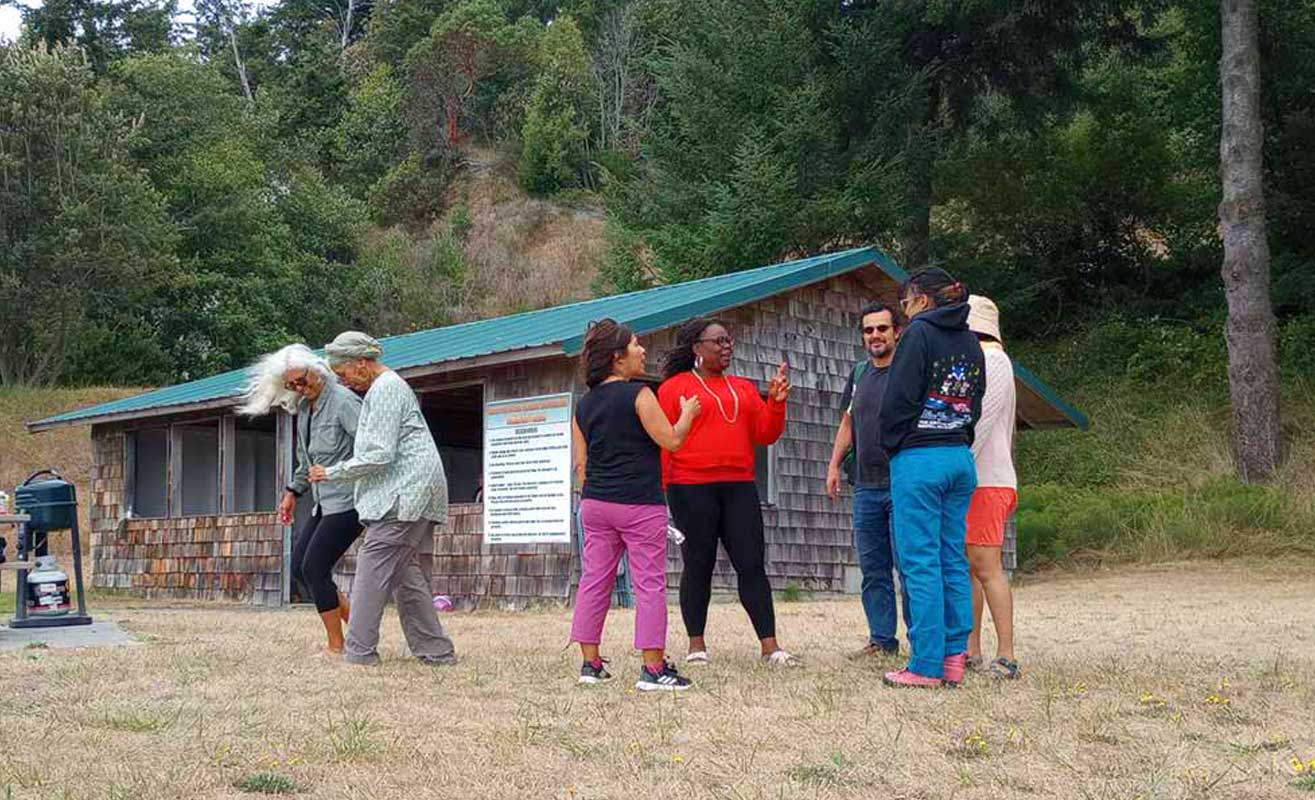
Photo courtesy of Center for Rest and Restoration.
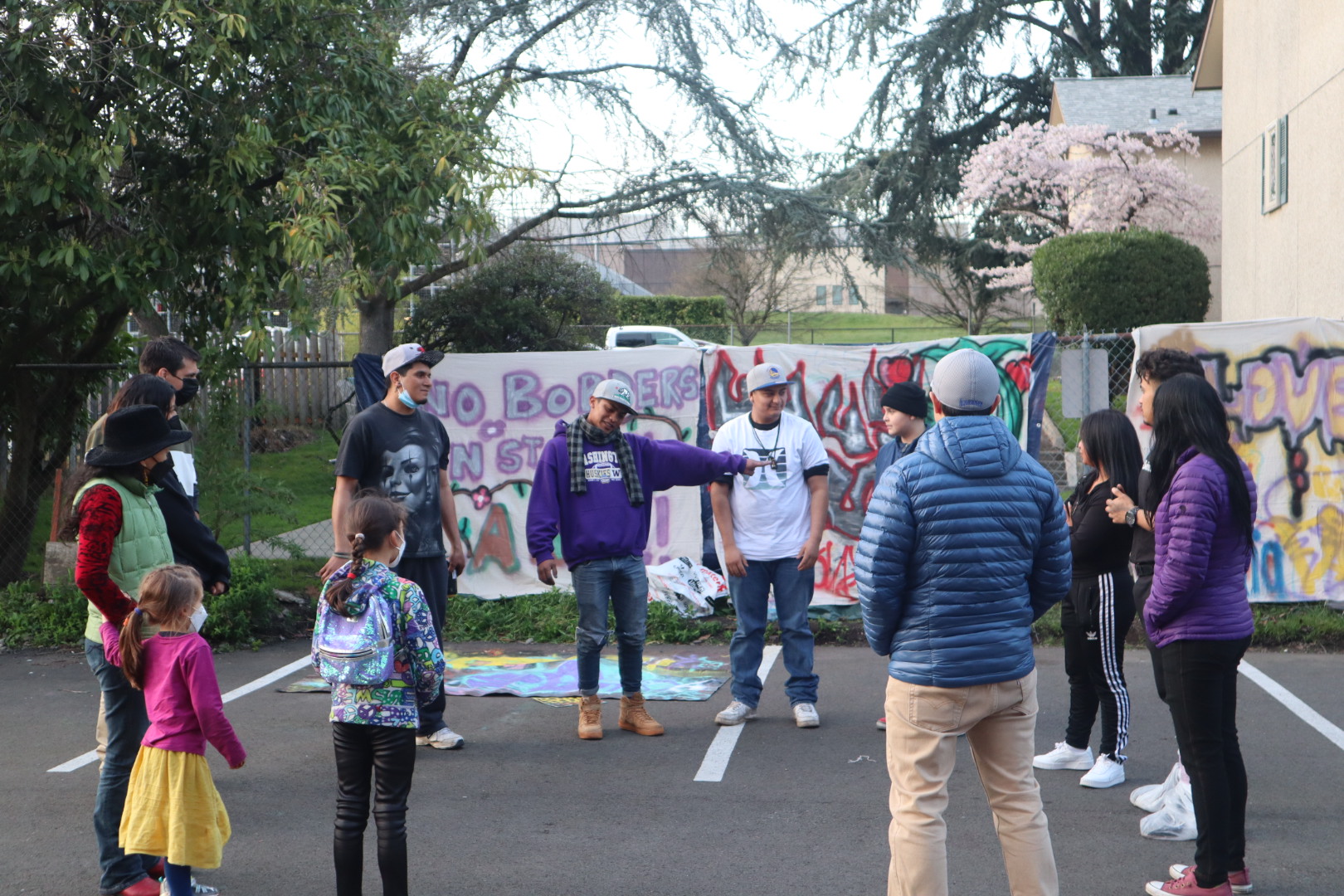
Photo courtesy of Super Familia.
Groups that are building community power to advance equity and racial justice
We want to support organizations focused on bringing people together to imagine and define a collective vision and purpose; and that are committed to developing and acting upon community-defined priorities. As long as it advances racial justice and equity in Washington, the work could be mobilizing people and organizations for policy change, developing community and political leaders, creating shared generational wealth, engaging voters, reclaiming cultural practices, fostering connection, leading anti-racism efforts, and the many other ways communities express power.
Accessibility commitment
We are committed to making the application process available in languages other than English and to people with disabilities. We are also excited to work with organizations that are new to us. To those ends, we provide:
- Interpretation and translation services (including ASL and/or CART),
- Large-print formats of instructions and applications,
- Alternative application methods, including over the phone, by video or voice recording, and on paper,
- Support from professional grant writers.
Please contact us at grants@inatai.org or 866.389.5532 if you need one of these or another service, and we will do our best to provide it. We know it takes time, trust, and effort to request these services, and thank you for sharing how we can make this process work for you.
Organizations We Are Supporting
Here are three of the many organizations we support through Community Power Grants.
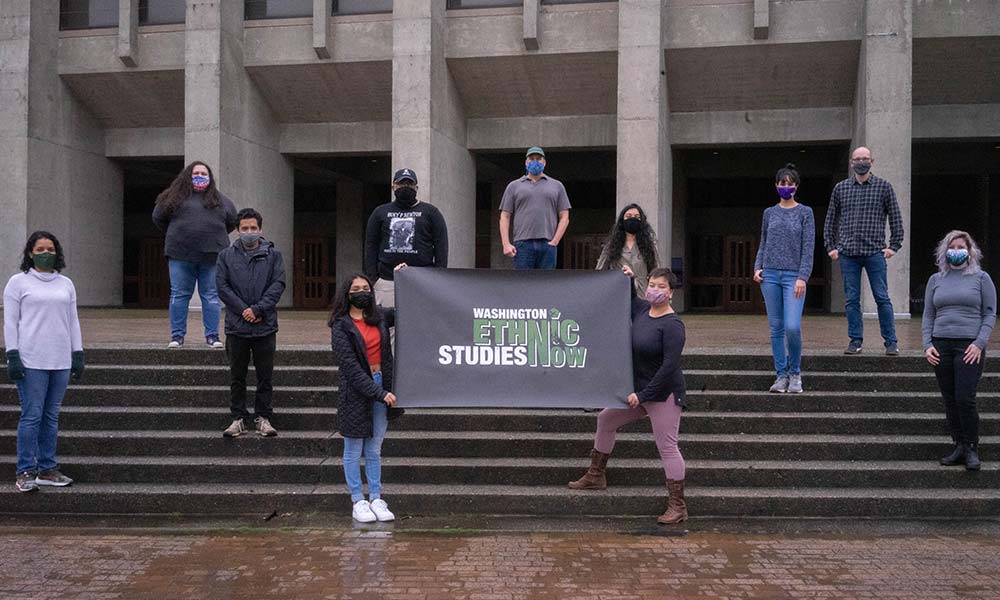
Washington Ethnic Studies Now
Washington Ethnic Studies Now is a nonprofit formed in 2019 to support the implementation of Ethnic Studies statewide. They hope to ensure that the tenets of ethnic studies are taught in every classroom in Washington by antiracist educators centering the experiences of BIPOC individuals.
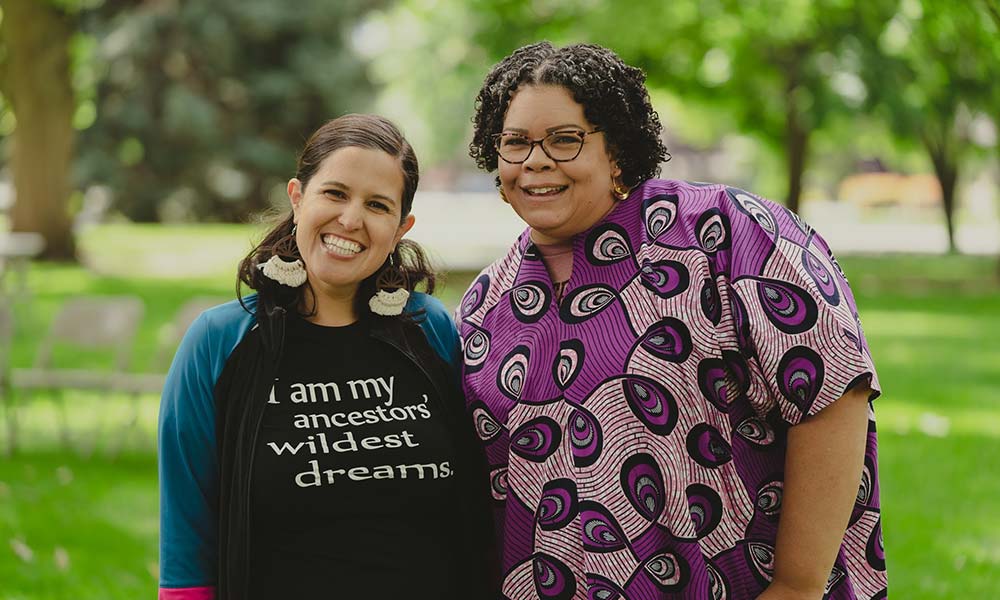
Color Our Community On Awareness
COCOA seeks to amplify melanated voices through joy, art, and literature in the Walla Walla Valley. They hope to build awareness in their community of the diversity that already exists. They are working to build a community that welcomes diversity as part of the intricate and beautiful design of Southeast Washington.
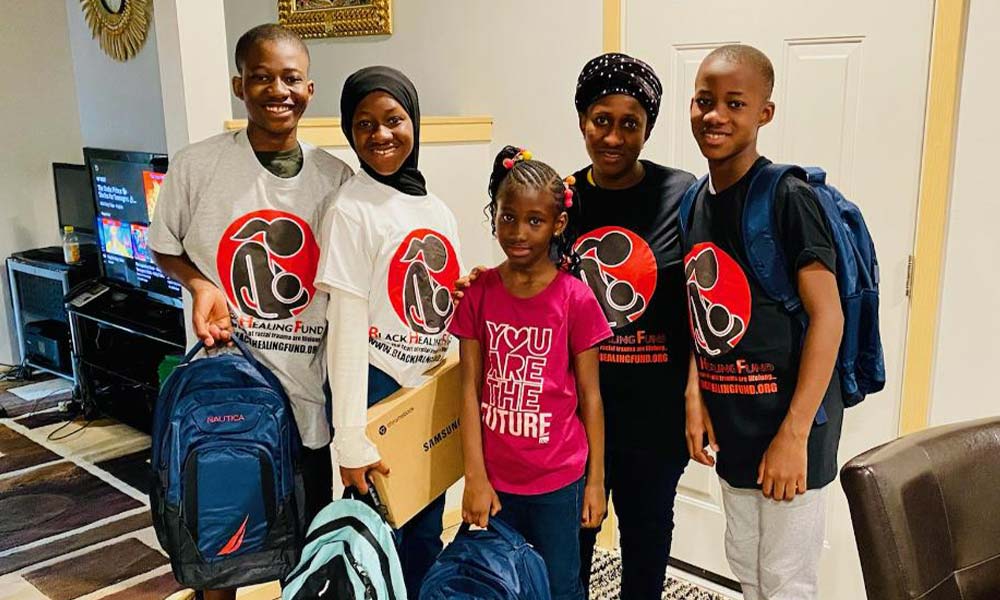
Black Healing Fund
The Black Healing Fund is a Black-founded and Black-led organization based in Lake Stevens. They provide human services to build and support community members in need who identify as Black, African, and African American, and who are residents of Snohomish County.
FAQ
Frequently Asked Questions
Who is eligible for a grant?
This year, Inatai Foundation will focus on renewing funding with organizations who are reaching the end of their previous Community Learning Grant. Organizations and fiscally sponsored projects eligible for renewal will receive a direct invitation to apply from the foundation. We will reach out to a small number of prospective new grantees to submit grant applications, by invitation only.
What types of organizations or projects is Inatai looking to support?
We will prioritize support for those organizations that:
- Have been overlooked by—or have had limited access to—philanthropy and institutional funders.
- Are founded, led, and governed by people who reflect their communities.
- Are building community power to advance equity and racial justice.
If invited, how do I apply?
Organizations and fiscally sponsored projects invited to apply for a renewal grant will be asked to submit an application that encourages organizations to describe their mission, leadership, and the aspirations they have for their community. The preferred method for submitting an application is through our online application form. Please note that the online application form does allow you to begin your application, save your work, and return to it later.
Inatai Foundation strives to make this process widely available to people with disabilities, people who communicate in languages other than English, and organizations that are new to working with philanthropy or other funders. Invited organizations are encouraged to request an alternative application process or other accommodations via email to grants@inatai.org or by calling us at 866.389.5532 if you require assistance in completing and submitting your application.
You use the terms “cross-racial,” “multiracial,” and “multicultural” in your application. How do you define them?
We invite you to review our organization definitions to clarify terms and to assist you in completing this portion of the application. It is very important that all applicants understand and use these definitions accurately when applying for funding.
What types of activities are supported by these grants?
Community Power Grants provide three-year, unrestricted funds to support day-to-day operations that fall within the mission of an organization. Grantees can use unrestricted funding for payroll and staffing costs, rent and capital projects, programs, services, or other costs without limitation.
What is unlikely to be supported by Community Power Grants?
We generally do not expect to support the following with Community Power Grants:
- Organizations whose work focuses exclusively on individual interventions (e.g., provision of services or care, mentoring programs, individual success or achievement) to address systemic issues.
- Organizations and fiscally sponsored projects that have significant financial assets and philanthropic revenue from foundations and private donors.
- Philanthropy-serving organizations, funder collaboratives, and community-of-interest funds (including those hosted by charitable organizations and research institutions).
- Partisan efforts or candidate electioneering, regardless of party affiliation.
- Specific departments, pilot projects, or some component part of larger organizations (Note: This is distinct from fiscally sponsored projects).
- Friends-of, fans-of, parents-of, and supporters-of groups affiliated with larger institutions.
Community Power Grants do not support individuals (e.g., scholarships and fellowships), LLCs, partnerships, or similar businesses. Nor do they support organizations that do not primarily serve people in and immediately surrounding Washington.
Finally, our guiding philosophy is that our grants do not support organizations whose model is to do things to and for communities—that is, groups that are not created, led, governed, and operated by people who the organization is intended to serve.
How many renewal grants will be awarded?
In 2024, we expect to make renewal grants to approximately 75 organizations. Each grant is a three-year commitment of $225,000 in total funding, or $75,000 per year.
Does applying impact my Sponsorship request?
No. We consider Sponsorships separately from Community Power Grants. You can apply for both.
You already have my information on file. Do I have to send it again?
Yes. You must provide full information for each application you submit. Please forgive any inconvenience this may cause.
Why do you ask for identity and demographic information? We do not have (or cannot collect) the information requested. What should we do?
We collect race and ethnicity, gender identity, and other types of information so we can understand the ways in which we are—and are not—making grants that are advancing our racial justice and equity goals. We are committed to funding organizations who are founded, led, and governed by the people they serve; and we hope that applicants will see this as an opportunity to reflect on and celebrate their leadership and organizational identities.
We ask that grant applicants provide us, at minimum, their race, ethnicity, disability, and gender identity demographics. We cannot accept applications without this information. If these fields are either incomplete or an inaccurate representation of an organization’s leadership we will discard the application, as we have written about here.
We recognize that organizations are in different places on the journey toward reflective leadership. We are interested to learn why this work is important for your organization, the approaches you’re taking to achieve your goals, and where you are in your progress. If there are elements of the identity questions that you cannot answer, or that pose a barrier for cultural or other reasons, please explain those barriers within the application. Questions about identity can be complex and sometimes come with context that we may not fully understand. We also recognize that sharing this information requires trust and we commit to hold in strict confidence all information you submit to us.
Are there special instructions for fiscal sponsors or fiscally sponsored projects?
Fiscal sponsors must be able to provide documents that clearly define the differing roles and responsibilities of the fiscal sponsor (e.g., their legal, administrative, and financial oversight) versus the sponsored project (e.g., ability to exercise reasonable independence in programs and priorities). The fiscal sponsor must have the ability to produce separate financial statements and reports for each project that applies for funding. Generally, we expect that fiscally sponsored projects have distinct program staff or volunteer leaders and an advisory board or steering committee that guides the project (and is separate from the sponsoring organization’s board of directors or staff). We also expect the project to have a distinct name and brand from the sponsoring organization.
What is required of grantees after funds have been awarded?
Over the coming months and years, we will continue to work with you to deepen our relationship, better understand your work, and share information and connections with you and a growing community of grantee organizations. Among other things, that will include the following:
- You’ll be asked to submit brief narrative reports and standard financial reports once per year. Photos and stories are encouraged!
- You’ll be invited to meetings hosted by us from time to time—including one-on-one and group gatherings where we build connections, share information with one another, and tackle issues together. Our goal is always to make those meetings worth your time. When we host, we pay for accommodations, travel stipends, and meals.
Throughout our relationship, we’ll ask that you keep us up to date on major developments (e.g., major staff transitions, changes to tax status, legal or communication issues, financial changes, major victories, etc.).
